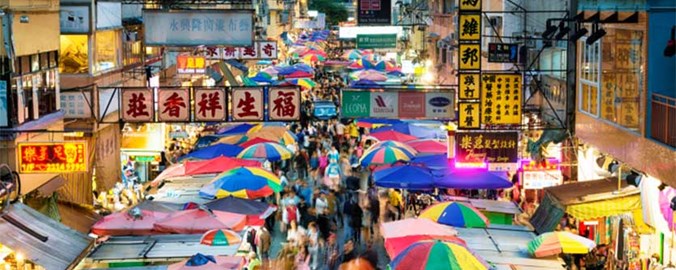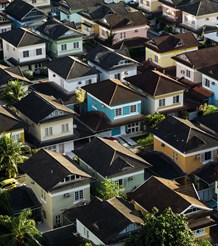
Bangkok's Residential Property Market Remains Robust In Q2
Both real estate firm JLL and estate agents Colliers report healthy sales for the second quarter of 2018. Interest from overseas buyers and greater domestic demand, especially from Hongkong and China, meant that Bangkok's residential market remained robust, despite challenging market conditions elsewhere.
Supply of new housing stock is also increasing. Colliers reported for the new condominum market that by the end of Q1 some 563,843 units had already been completed and registered in Bangkok, with an additional 100,000 units still under construction and scheduled to be completed in the near future. The new condominiums are being built mostly along new public transport lines. Pricing has become more realistic, according to Colliers, who stated that many developers are selling at prices "starting from THB 70,000 to THB 150,000 per square metre outside Bangkok's inner city area".
As for the serviced apartments segment of the market, Colliers reported that some 88,000 expats had applied for work permits by the end of Q2 2018. The total number of expatriats living and working in Bangkok has risen in recent years. Bangkok has ca. 21,147 serviced apartments. The average occupancy rates of such dwellings - based on all locations - have steadily increased, with most districts seeing rates of 82% and above. Unlike London's serviced apartments, Bangkok's serviced apartments are leased on long-term contracts, offering buy-to-let landlords a far more stable income with good yields.
For this reason perhaps, Japanese developers are flocking to the Thai property market, where they join with local partners to reap the benefits of Thailand's robust residential sector. One of the latest entrants to the developers' market is Tokyo Tatemono Co. One of the leading Tokyo-based developers, the firm signed a joint venture agreement with Raimon Land Public Co this spring, promising to invest 9.1 billion THB (approx. $288 million) into a development comprising of two high-rise condo complexes. One of these will be in Prompong, the other in Sathorn, both central districts of Bangkok.
This is the first time Tokyo Tatemono, a company with 100 years experience under its belt, is investing in the Thai property market. In total, the development will have around 400 units. Each is to be offered at an asking price exceeding 10 million THB. Construction is to begin later this year, with completion forecast for 2021.
The company's executive managing officer, Katsuhito Ozawa, said that in his opinion Thailand's stable economic growth rate would "continue to create more residential demand".
Thai partner Raimon Land will own a 51% share in the joint venture. The company specialises in condos aimed at the middle to upper price range in central Bangkok. Adrian Lee, the company's CEO, said that the firm aimed to double its annual revenue to 10 to 12 billion THB per annum over the next five years by going into partnership with Tokyo Tatemono.
One of the many reasons why the Thai property market attracts Japanese developers is the fact that the country's government offers investment promotion schemes. For example, the Eastern Economic Corridor (EEC), which is a national Thai project that will see a huge industrial area being created east of Bangkok, will benefit from the expansion of a mass rapid transit system in Bangkok and its surrounding suburbs.
Such initiatives, coupled with improved infrastructure, have attracted a growing number of foreign investors, both small and medium-sized developers. The growing number of Japanese investors coming in means Thai developers can benefit from financing and foreign expertise in how to make the most of available space, when building residential complexes.
The EEC comprises of the eastern provinces Chouburi, Rayong and Chachoengao, which lie off the coast of the Gulf of Thailand. The areas spans 13,285 square kilometres. The EEC is scheduled for completion by 2021. Thailand's government aims to create a hub for a wide range of manufacturing sectors and service providers, such as bio-plastics, functional food and cosmetics manufacturers, smart automobile and robotics manufacturers for industrial and lifestyle use, as well as aviation, maintenance and related businesses, including air cargo.
The whole project is budgeted to cost around $45 billion and the Thai government aims to provide strong connectivity to its Asian neighbours by air, sea and land with the EEC's completion.

